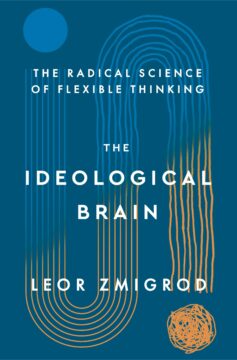Matt Richtel in the New York Times:
 So sharp are partisan divisions these days that it can seem as if people are experiencing entirely different realities. Maybe they actually are, according to Leor Zmigrod, a neuroscientist and political psychologist at Cambridge University. In a new book, “The Ideological Brain: The Radical Science of Flexible Thinking,” Dr. Zmigrod explores the emerging evidence that brain physiology and biology help explain not just why people are prone to ideology but how they perceive and share information.
So sharp are partisan divisions these days that it can seem as if people are experiencing entirely different realities. Maybe they actually are, according to Leor Zmigrod, a neuroscientist and political psychologist at Cambridge University. In a new book, “The Ideological Brain: The Radical Science of Flexible Thinking,” Dr. Zmigrod explores the emerging evidence that brain physiology and biology help explain not just why people are prone to ideology but how they perceive and share information.
This conversation has been edited for clarity and brevity.
What is ideology?
It’s a narrative about how the world works and how it should work. This potentially could be the social world or the natural world. But it’s not just a story: It has really rigid prescriptions for how we should think, how we should act, how we should interact with other people. An ideology condemns any deviation from its prescribed rules.
You write that rigid thinking can be tempting. Why is that?
Ideologies satisfy the need to try to understand the world, to explain it. And they satisfy our need for connection, for community, for just a sense that we belong to something.
More here.
Enjoying the content on 3QD? Help keep us going by donating now.
